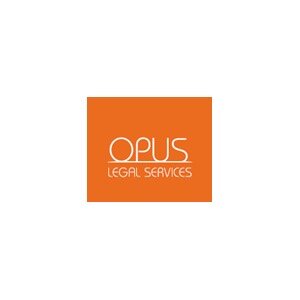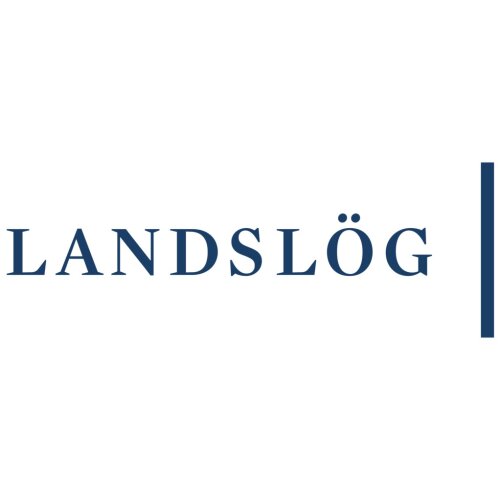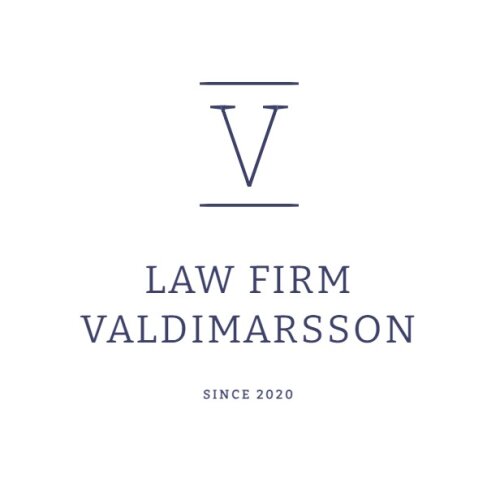Best Restructuring & Insolvency Lawyers in Iceland
Share your needs with us, get contacted by law firms.
Free. Takes 2 min.
Or refine your search by selecting a city:
List of the best lawyers in Iceland
About Restructuring & Insolvency Law in Iceland
Restructuring and insolvency law in Iceland governs the processes that individuals and businesses can take when they face severe financial difficulties or are unable to pay their debts. The legal framework includes a variety of mechanisms, such as formal bankruptcy proceedings, out-of-court settlements, and financial restructuring. The goal is not only to provide fair and transparent procedures for creditors and debtors but also to protect jobs, preserve business value, and maintain economic stability within the Icelandic financial system.
Why You May Need a Lawyer
Seeking legal advice in the field of restructuring and insolvency can be crucial if you or your business are experiencing financial distress. Here are some common situations where engaging a legal expert is advisable:
- Your company is unable to meet its financial obligations or has received formal demands for payment.
- You are an individual debtor facing overwhelming personal debts and considering debt relief solutions.
- Your business is being threatened with foreclosure, liquidation, or forced bankruptcy.
- You are a creditor needing to recover debts from an insolvent business or individual.
- You wish to explore debt restructuring options to avoid insolvency or bankruptcy.
- You are involved in disputes regarding creditor priorities or asset division in insolvency.
- You are concerned about director’s liabilities and responsibilities during financial distress.
- You need help understanding your rights and obligations in insolvency procedures.
Having a lawyer with expertise in Icelandic restructuring and insolvency law ensures that your interests are protected, all legal options are considered, and you are guided through complicated legal processes effectively.
Local Laws Overview
In Iceland, restructuring and insolvency matters are primarily governed by the Act on Bankruptcy, etc. No. 21/1991. This legislation outlines the processes for bankruptcy, debt restructuring, winding-up, and receivership. The key aspects to be aware of include:
- Bankruptcy Proceedings: If a debtor is unable to pay debts as they fall due, bankruptcy can be declared by a district court, usually following a petition from either the debtor or a creditor.
- Debt Negotiations: Debtors may apply for formal debt negotiations, similar to restructuring proceedings, to reach an agreement with creditors under court supervision. This can allow for debt reduction, payment extensions, or other solutions.
- Moratoriums: Courts may grant temporary suspensions of debt payments to allow time for debt negotiations or other recovery measures.
- Order of Payments: Icelandic law stipulates a clear priority of claims, with certain creditor groups having preference in insolvency distribution.
- Director’s Duties: Directors are obliged to act in creditors’ best interests during insolvency and may be personally liable for wrongful trading or failure to file for bankruptcy in time.
- Cross-border Insolvency: There are specific provisions handling cases where foreign creditors or assets are involved, in line with international cooperation agreements.
The procedures are court-driven, and legal representation is often essential for both debtors and creditors to navigate these complex processes.
Frequently Asked Questions
What is the difference between restructuring and bankruptcy in Iceland?
Restructuring involves reorganizing debts and business operations to regain solvency, usually allowing the company or individual to continue operating. Bankruptcy is a legal declaration of insolvency, followed by liquidation of assets to pay off creditors.
How do I start bankruptcy proceedings in Iceland?
A bankruptcy case begins with a petition filed at the district court by either a creditor or the debtor. The court then evaluates whether the legal requirements for insolvency are met before declaring bankruptcy.
Can individuals, not just companies, file for bankruptcy or debt restructuring?
Yes, both individuals and companies in Iceland can initiate bankruptcy or seek court-supervised debt restructuring if unable to meet their financial obligations.
What happens to my assets during bankruptcy?
In bankruptcy, a court-appointed trustee takes control of the debtor’s assets, which are then liquidated to pay creditors in accordance with the order of priorities established by law.
Are there alternatives to bankruptcy in Iceland?
Yes, alternatives include voluntary debt negotiations, court-approved restructuring agreements, and moratoriums. These options may help avoid bankruptcy by finding mutually acceptable repayment solutions.
What responsibilities do company directors have during insolvency?
Directors must act in good faith and protect the interests of creditors. They are required to promptly address insolvency issues and could face personal liability for failing to act accordingly.
Do creditors have rights in Icelandic insolvency proceedings?
Yes, creditors have the right to submit claims, challenge wrongful conduct, and participate in asset distribution according to statutory priorities.
How long does bankruptcy last in Iceland?
Bankruptcy proceedings typically last several months, depending on the case’s complexity and the extent of the debtor’s assets and liabilities.
What are the consequences of being declared bankrupt?
Individuals face limitations on business activities and credit, while companies are dissolved after assets are distributed. Some debts may remain unpaid if assets are insufficient.
Can foreign creditors participate in Icelandic bankruptcy cases?
Yes, foreign creditors can submit claims in accordance with Icelandic law. Certain international agreements may also apply, depending on the circumstances.
Additional Resources
If you are seeking more information or assistance, consider contacting these organizations and resources in Iceland:
- District Courts (Héraðsdómstólar): Responsible for handling bankruptcy and restructuring cases.
- Financial Supervisory Authority (Fjármálaeftirlitið): Oversees financial markets, including certain insolvency issues.
- Icelandic Bar Association (Lögmannafélag Íslands): Provides information and directories for finding licensed lawyers specializing in insolvency and restructuring.
- Directorate of Internal Revenue (Ríkisskattstjóri): Offers resources related to tax implications of bankruptcy and restructuring.
- Debt Mediation Services: Available to individuals seeking informal debt solutions.
Next Steps
If you are facing financial distress, considering restructuring, or are affected by someone else’s insolvency, it is highly recommended to consult a qualified legal professional. Here is how you can proceed:
- Assess your financial situation and collect relevant documents such as financial statements, loan agreements, and correspondence with creditors.
- Reach out to a lawyer with experience in restructuring and insolvency to obtain tailored legal advice.
- Prepare questions in advance to make the consultation productive and targeted to your needs.
- Stay informed about your legal obligations and deadlines to avoid unintended consequences.
- If you are a creditor, do not delay submitting your claims to ensure consideration in court proceedings.
Early and informed action can be critical in achieving the best possible outcome in restructuring and insolvency cases in Iceland.
Lawzana helps you find the best lawyers and law firms in Iceland through a curated and pre-screened list of qualified legal professionals. Our platform offers rankings and detailed profiles of attorneys and law firms, allowing you to compare based on practice areas, including Restructuring & Insolvency, experience, and client feedback.
Each profile includes a description of the firm's areas of practice, client reviews, team members and partners, year of establishment, spoken languages, office locations, contact information, social media presence, and any published articles or resources. Most firms on our platform speak English and are experienced in both local and international legal matters.
Get a quote from top-rated law firms in Iceland — quickly, securely, and without unnecessary hassle.
Disclaimer:
The information provided on this page is for general informational purposes only and does not constitute legal advice. While we strive to ensure the accuracy and relevance of the content, legal information may change over time, and interpretations of the law can vary. You should always consult with a qualified legal professional for advice specific to your situation.
We disclaim all liability for actions taken or not taken based on the content of this page. If you believe any information is incorrect or outdated, please contact us, and we will review and update it where appropriate.
Browse restructuring & insolvency law firms by city in Iceland
Refine your search by selecting a city.

















